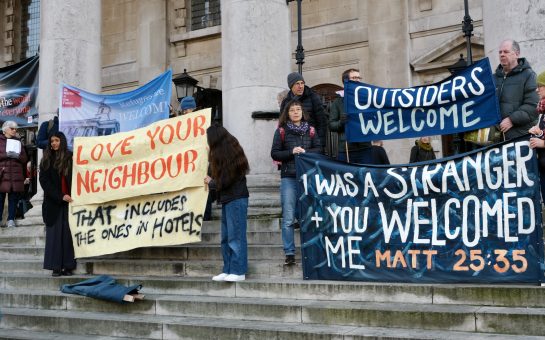The Conservatives’ manifesto reiterated its commitment to abolishing Section 21, which allows landlords to evict tenants without providing a reason.
This pledge aligns with their ongoing efforts to pass the Renters’ Reform Bill, which aims to reform the rental sector and improve housing quality, even though that bill will now not be passed before the general election next month.
The Renters’ Reform Bill, introduced to Parliament by Michael Gove in May last year, seeks to overhaul the social and private rent sectors. Despite facing significant amendments and opposition from MPs, the bill aims to address major issues in the private renting market, including the controversial Section 21.
The proposed reforms would replace no-fault evictions with a system where landlords must seek court approval for evictions, thereby enhancing tenant protections and introducing rolling tenancies.
The bill has encountered delays, partly due to the need to prepare the courts for the increased volume of eviction cases that would follow the abolition of Section 21.
Under the current laws, anti-social behaviour falls under different grounds for eviction, typically requiring landlords to provide specific notice and evidence. The standard notice period for such evictions is generally longer than 28 days, often involving a two-month notice period. The proposed reforms aim to remove the uncertainty of no-fault evictions while maintaining stricter eviction criteria based on anti-social behaviour.
According to the Trust for London, part of the increase in homelessness is because of ‘no fault evictions.’
According to Ministry of Justice data, London has experienced a significant rise in ‘no-fault’ eviction claims, with a 62% increase from 7,057 in 2022 to 11,457 in 2023. The trend continued with an additional 52% increase to 11,880 claims in the year ending March 2024, up from 7,834 in the previous year.
Housing unions are fighting back.
ACORN, specifically, has spearheaded the lobbying campaign for the bill since its inception.
Speaking with ACORN, the housing union lobbying for the pass of the Renters’ reform bill including section 21, their Policy Officer Ben Leonard said: “All the time tenants are too afraid to challenge around repair, too afraid to challenge on rent rises, because they know that the landlord has their ace in the pocket.”
ACORN is a union for renters that has over 20 branches in the UK and stretches further internationally.
ACORN has said it adopts direct action to deal with local councils and private landlords. In one dispute with Lambeth Council in 2022, ACORN resorted to a striking protest, sending a gift-wrapped fake turd as a symbol of their frustration.
The action was spurred by the dire situation faced by a South London family enduring six months of sewage leaking into their council flat without any resolution from the council.
Community officer Frances Hargreaves said: “We were disappointed with their response to our member Tala and his mum.
“People shouldn’t be living with raw sewage in their homes.
“Council could have worked with us to resolve the situation and get him and his men the compensation they deserved.”
The situation was eventually resolved but the council refused to pay for damages to any of the family’s belongings.
The Office for National Statistics has identified Lambeth as having one of the highest rates of homelessness in London.
According to Leonard, the Renter’s Reform Bill will give tenants more power and a little more ability to assert their rights.
This will empower residents to uphold the Decent Home Standard without fearing eviction when raising concerns with the council or landlord about property issues.
There has been an increased number of homeless people since the pandemic.
According to the Trust for the London the number of rough sleepers in London soared from approximately 3,472 in 2008/09 to 11,018 in 2020/21, then dropped to 8,329 in 2021/22 before rising to 10,053 in 2022/23.
Image via Pixabay





